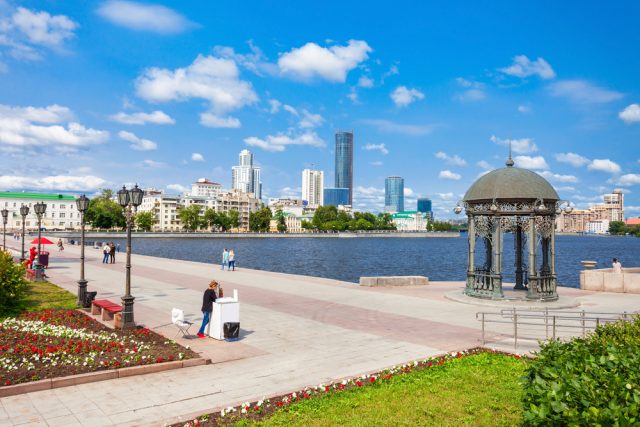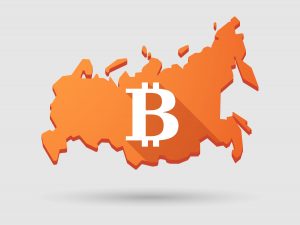
By William Suberg,
As blockchain becomes increasingly accepted in Russia, Bitcoin itself is starting to catch up. For the first time, a real estate agency is offering a property for BTC as an ‘asset exchange.’
A Russian Apartment for 77 Bitcoins
 October 3 saw what is likely the first ever official Russian real estate listing for bitcoins. An apartment in the city of Ekaterinburg in the country’s Ural mountains is currently available for 2.9 million rubles – or the less daunting 77 BTC.
October 3 saw what is likely the first ever official Russian real estate listing for bitcoins. An apartment in the city of Ekaterinburg in the country’s Ural mountains is currently available for 2.9 million rubles – or the less daunting 77 BTC.
The host agency, Obmenkvartir (Russian for ‘property exchange’), describes the listing as “an exclusive offer for those lucky holders of cryptocurrency.”
Such news from the consumer sphere may be modest, and may remain a one-off for some time. However as a test case for the country’s changing attitudes towards cryptocurrency, it provides pause for thought.
Russia’s relationship with Bitcoin — as opposed to blockchain technology — has been notable for authorities’ seemingly contradictory behaviour regarding its legal status.
While the government has passed no hard-and-fast rules to make Bitcoin illegal in Russia, it has reiterated that the ruble is the only legal currency for domestic transactions. As a consequence, experts and consumers alike understand that offering payment in bitcoin could have negative legal consequences.
Asset Exchange As a Bitcoin Backdoor?
 Indeed, the apartment offering cannot constitute a Bitcoin ‘sale’ in the true sense. As the name of the host website suggests, the offer is (in the legal sense) simply an ‘exchange.’
Indeed, the apartment offering cannot constitute a Bitcoin ‘sale’ in the true sense. As the name of the host website suggests, the offer is (in the legal sense) simply an ‘exchange.’
“The exchange of assets in Russia is not prohibited,” Evgeniy Bolotin, deputy chairman of the Ural Banking Union told news resource RG.ru. “In our country, the only legal currency for making payments is the Russian ruble, so this deal can only qualify as an exchange.”
Nonetheless, that the listing still exists after two weeks contrasts previous events. Local lawmakers have, in the past, successfully blocked access to websites simply providing information about cryptocurrency. Some did not even offer consumer transactions.
Legal Gray Area Still Exists
The trend continues. Most recently in September, access to popular exchange resource Localbitcoins was blocked across the country. However, Localbitcoins was able to create a workaround using a mirror site in a countermove. This again emphasized the complex nature of what a legal ‘ban’ really implicates.
At the same time, Moscow’s most recent statements suggest that truly criminalizing cryptocurrency use is not on the cards for now. Trading, in the words of deputy finance minister Alexey Moiseev, is allowed, but mining would remain illegal. This preserved the issue as a gray area, which is set to continue.
